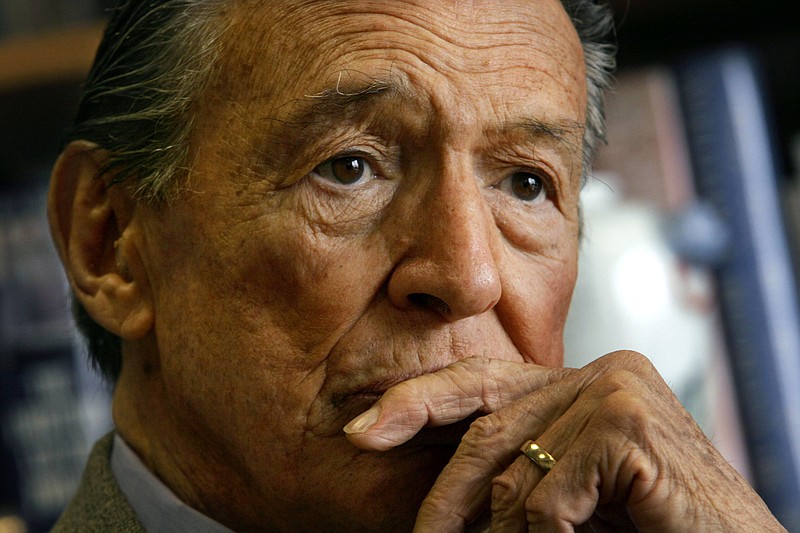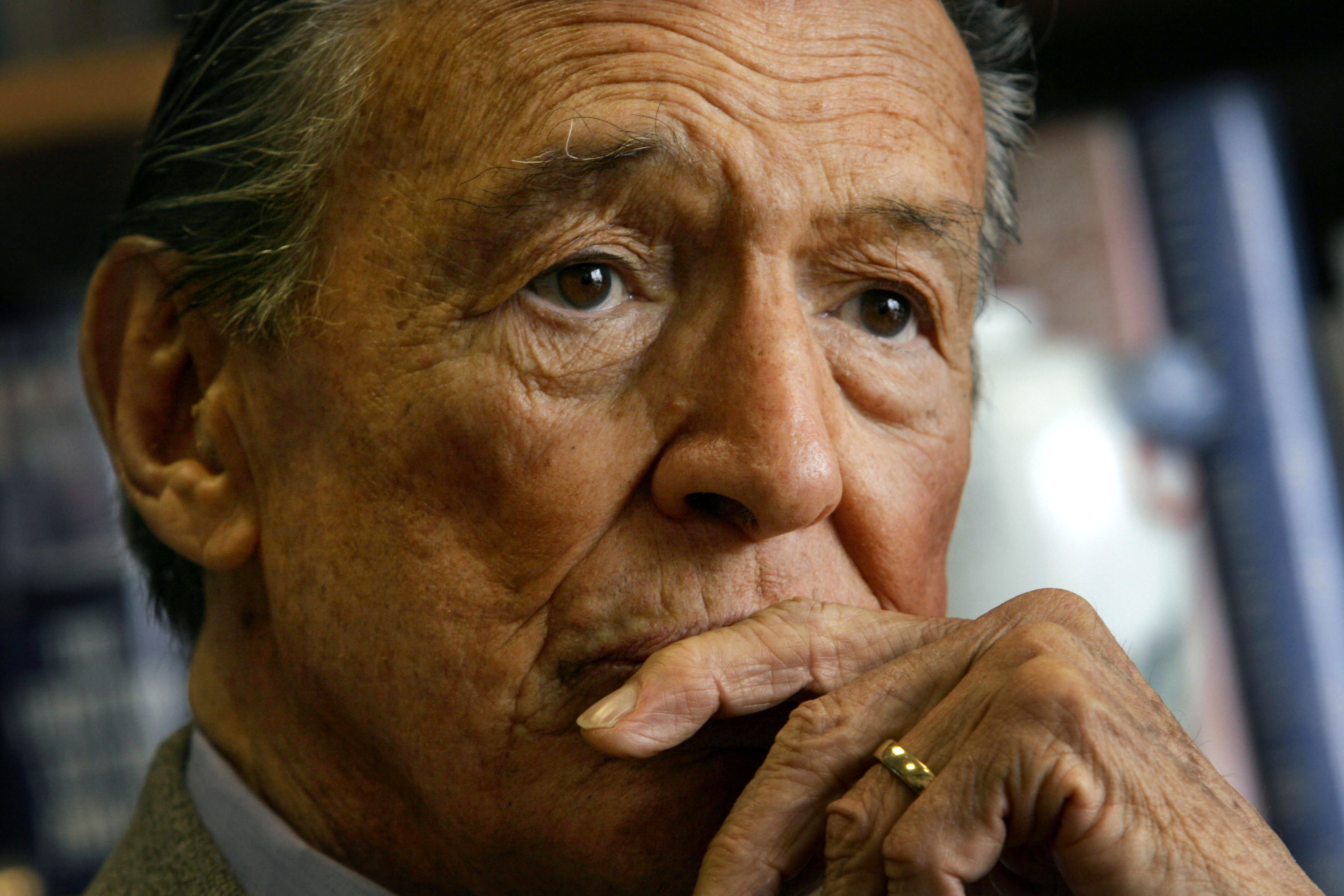Mike Wallace, the newsman whose confrontational and often controversial manner made his a household name and helped make the TV news program "60 Minutes" a consistent ratings winner, died late Saturday. He was 93.
Wallace's career spanned decades, but he was not always a hard-hitting newsman. He was a radio entertainer in the 1940s, then moved to television as host of game and other shows in the early 1950s. Later that decade, he turned full-time to news coverage. It was a propitious step. As a newsman, he won 21 Emmys, five DuPont-Columbia journalism awards and five Peabody Awards.
Wallace was on the initial staff of "60 Minutes, " in 1968 and was associated with the program until his official retirement in 2006, though he still contributed to CBS news programs as a "correspondent emeritus" until ill health brought his career to an end in 2008. All in all, he did more than 800 pieces for "60 Minutes."
The show became must-see TV, a program whose familiar "tick, tick, tick" introduction was known by up to 40 million viewers in its heyday. It quickly became a ratings leader -- and major moneymaker for CBS. It remains so today.
Much of that success can be traced to Wallace, whose style and determination to get an interview often made him a part of the news as well as a chronicler of it. His interviews with seven U.S. presidents, Iran's Ayatollah Khomeini, China's Deng Xiaoping, Palestinian leader Yasser Arafat, Israeli Prime Minister Menachem Begin, Libyan dictator Moammar Gadhafi, Dr. Jack Kevorkian and entertainer Barabra Streisand, to name a few, are considered broadcast news classics.
Indeed, his interviews were so likely to produce informative and entertaining fireworks that one prominent businessman took out newspaper ads that read: "The Four Most Dreaded Words in the English Language: Mike Wallace Is Here."
Wallace's career was not all accolades and awards. He was embroiled in a highly publicized lawsuit involving Gen. William C. Westmoreland, who sued for libel following a "CBS Reports" documentary on Vietnam. He was caught in the crossfire of a tobacco-industry scandal that his network first refused to air, but later did broadcast.
Wallace later said that he became so depressed during the Westmoreland case that that he required hospitalization for depression and tried to commit suicide. He recovered with the help of antidepressants and psychiatric care. He learned from his bout with depression. He became a highly vocal and public advocate for better federal funding for depression research.
Through it all, Wallace remained a newsman whose work helped establish the highest standard in broadcast journalism. It's unlikely we'll ever see or hear a journalist like him again. That's our loss.

